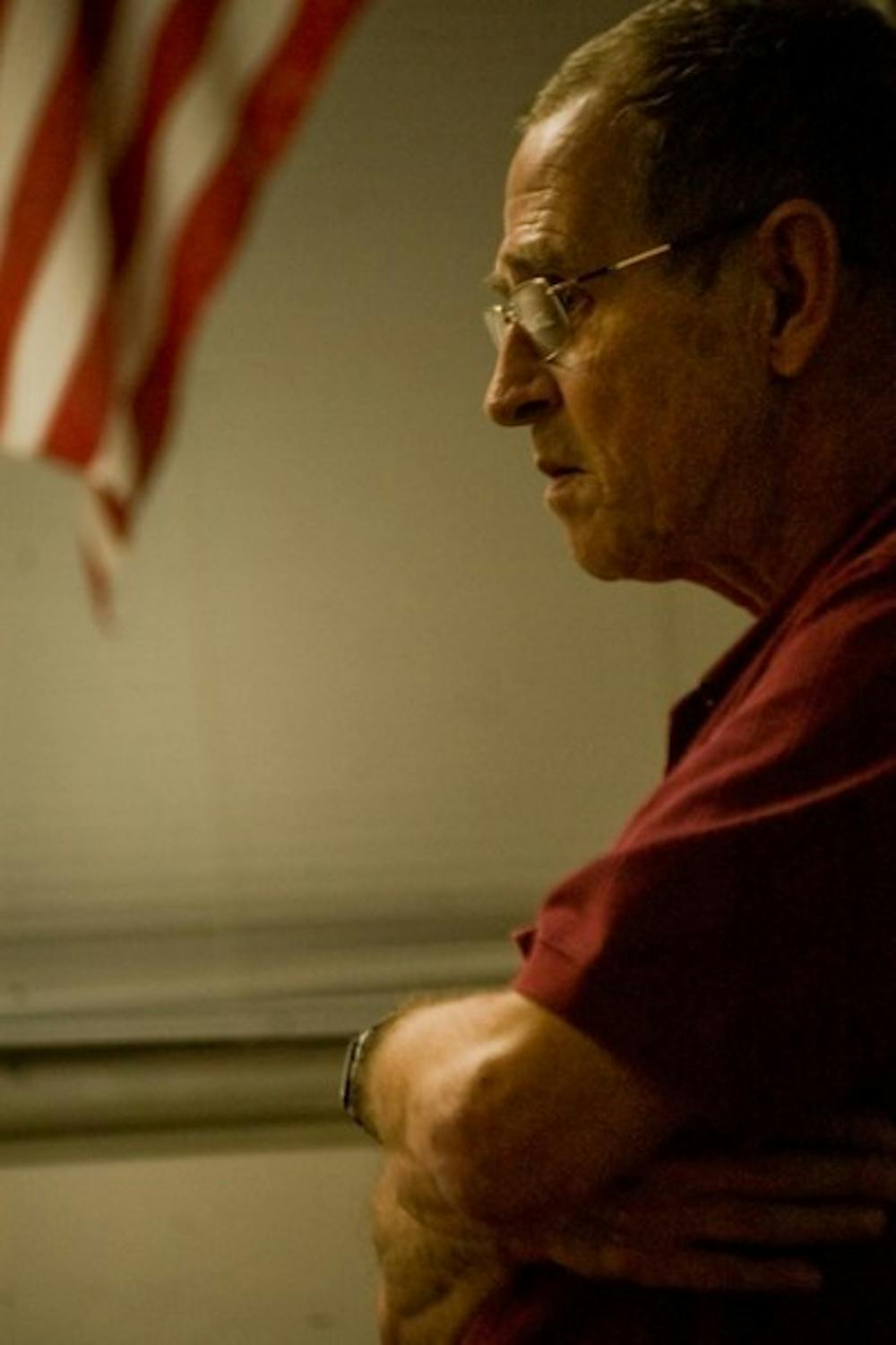What would you do if you lived in poverty? How would you provide for your family? Where would you sleep? What would you eat?
Every day, questions like these run through the minds of over 925 million people worldwide and about 45 million people in the United States.
In Alachua County there are about 1,300 homeless people, according to the National Coalition of the Homeless.
There are a number of reasons for their disposition: expensive housing, mental illness and poverty, but hardly a face to put behind the global problem.
That is why ACTIONS! sponsored a Poverty Forum Monday night to kick-start Hunger and Homelessness Awareness Week.
About 20 people attended the event at McCarty Hall A to learn more about poverty in Gainesville and to put a face to the global problem.
Chelsea Carnes, coordinator of the Faces of the Homeless Speakers Bureau, said the No. 1 cause of homelessness is a lack of affordable housing.
About 45 million Americans in 2009 lived in homes where the income was below poverty level, which is about $22,000 for a family of four, according to the Census Bureau.
Steven Dennis, a Vietnam veteran, was at one point just like the 100,000 veterans who are on the streets every night.
"Death and destruction does not make you feel good no matter what the cause is," Dennis said. "I found that out when I returned home and didn't receive any kind of welcome."
Dennis said that coming off the ship, protesters threw "bags of crap at us" and "called us things like 'baby raper' and 'murderer.'"
After returning home, he did not receive disability compensation. He held a string of failed jobs and had difficulty assimilating into civilian life.
He began self-medicating.
He suffered from PTSD, type 2 diabetes, depression and substance abuse, all while living in a tent in the woods.
Pushed to the cultural margins, Dennis said when he went into town he was always kicked out of every restaurant, even when he had money on him.
"They would say, 'We don't want your kind here,'" Dennis said.
Florida, which is ranked fourth in population size, was ranked the No. 1 state for hate crimes against the homeless, according to a 2009 report by the National Coalition for the Homeless.
A series of hate attacks on the homeless by bat-wielding teenagers in Ft. Lauderdale in 2006 stirred homeless advocates.
Their advocacy helped pass a bill May 11 that placed the homeless under protection from hate crimes.
"The biggest thing to understand is it's a civil rights issue," Carnes said during a interview before the event. "They're a minority."
Dennis, who had felt the aggression and discrimination of others, finally sought medical help after having a stroke.
He now receives disability payments, owns his own apartment, a color TV and a kitten.
He plans on returning to school in the spring to study for his bachelor's degree in psychology and to become a substance abuse counselor and counselor for veterans.
"When I stand for something, it's not just for veterans, it's for all homeless," he said.
If students want to get involved, would like to contribute to Hunger and Homelessness Awareness Week or are seeking humanitarian advocacy programs, they can fill out an application at www.leadershipandservice.ufl.edu.






